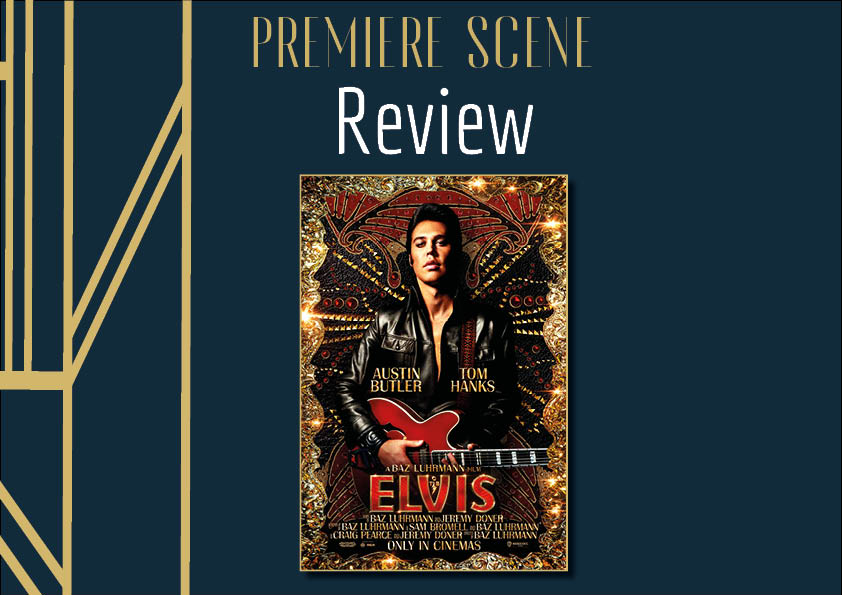

At A Glance
Luhrmann’s approach to filmmaking and storytelling is no secret. From Moulin Rouge to Romeo & Juliet, his work tends to be elaborate and glamourized. This unique biopic does not disappoint as it explores the enchanting evolution of a musician, who truly caught his audience in a trap. Through an Oscar-deserving performance from Austin Butler, as he captures the bewitching energy of Elvis Presley (casually known as EP), Butler, alongside Tom Hanks, leads a talented cast through the rise and fall of Elvis’s raw magnetism and charisma.

Film Details
Directed by Baz Luhrmann
Written by Baz Luhrmann, Sam Bromell, Craig Pearce
Released by Warner Bros.
2022, 159 minutes, 12A
Buy or Rent the Home Premiere from 8th August
Available on 4K, Blu-ray™ and DVD from 19th September
Social Media: @elvismovie #ElvisMovie
Cast
Austin Butler as Elvis
Tom Hanks as Colonel Tom Parker
Olivia DeJonge as Priscilla
Helen Thomson as Gladys
Richard Roxburgh as Vernon
Kelvin Harrison Jr. as B.B. King
Kodi Smit-McPhee as Jimmie Rodgers Snow
Elvis – A ‘Wiggling’ Narrative of the late King of Rock n’ Roll
By Hanane Zahrouni
“When you’re lost, people take advantage” – a quote as relevant in todays’ society as it was back in the 1970s. Baz Luhrmann’s vivid imagination and direction with co-writers, Sam Bromell, Craig Pearce, and Jeremy Doner successfully highlight the true influence and inspiration of Elvis Presley’s success, portrayed by the talented Austin Butler, who shared both swift-worthy and haunting performances of the late singer and his love for “Brown America.” Elvis was famous for drawing and giving credit from his Black equals, otherwise known as his “brothers’ as he sang “If I Can Dream.” His hope was bringing all society together, just like Martin Luther King wanted, who Elvis respected, as the Black community suffered from the unfortunate circumstances of segregation and discrimination. He felt their music woke the soul within him and was a positive feeling during his impoverished, yet privileged childhood. From the moment Suspicious Minds played with reverb in the opening credits, the result of goosebumps, did not do justice of what is yet to come – but both the good and the evil moments, which clouded the musicians’ life.
We see Elvis’s spirit moved by the “music that made him happy,” - a musician who credited the origins and influence of his discography – from the rhythms of Big Boy Crudup to Mahalia Jackson, who sang at the East Street church with her congregation as well as his first introduction to Big Mama Thornton, who echoed Hound Dog at Club Handy, on Beale Street, who was portrayed by the talented and late Shonka Dukerh. Despite the slight lack of cultural recognition, the story explored Elvis’s career – a man with the strength of two (after his twin brother was stillborn), and the love he had for “ghetto” music and a pink suit, which imitated the pink Cadillac he wished for his mama. The story also illustrated his search for the love he craved the most: that of his mama’s, upon her passing and Priscilla Presley, played by Olivia DeJonge – his wife and the woman “he will always love” after her leaving towards the last years of his life. DeJonge successfully captured the essence of Priscilla throughout her performance.
Most significantly, the story explored Elvis’s relationship with the music industry and his mysterious manager, and narrator of the story, Colonel Tom Parker, played by Tom Hanks, where Hanks brilliantly convinced the audience of the characters’ foul and complex behavior. Parker, aka the snowman, the lying dutchman, was an orphan who immigrated to the US, and remained there with no citizenship, only to becoming well-versed in the method of swindling. He was a carnival cheapjack and a pro in emptying a “rubes wallet, while leaving them with nothing.” His approach involved the techniques of a trickster using the distractions of vivid costumes and methods, which at first come across as trustworthy. He applied those conniving methods on Elvis, in addition to emotional extortion by using phrases such as “my boy”, straight after Elvis experienced neglect, from the death of his mama, leaving Parker to take on a father-like role, without hesitation, nor invitation by showing false sincerity for the musician.

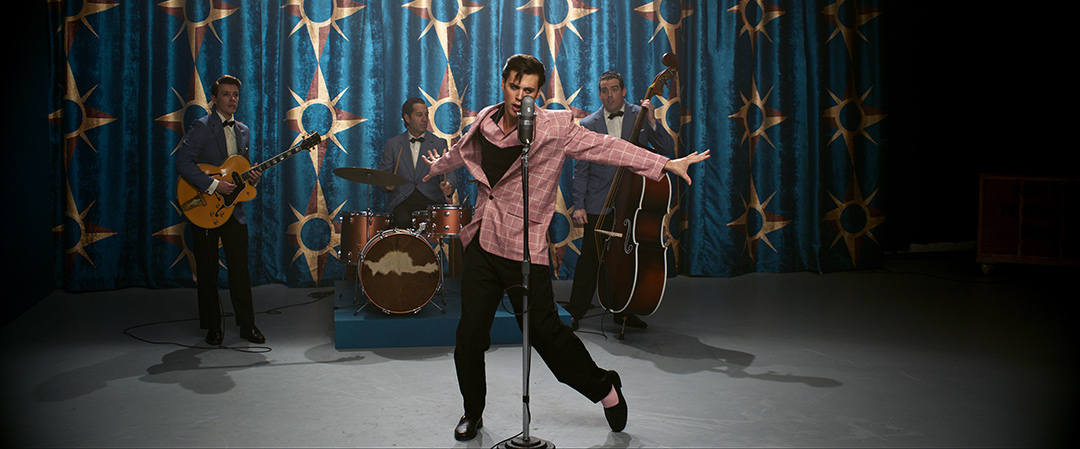
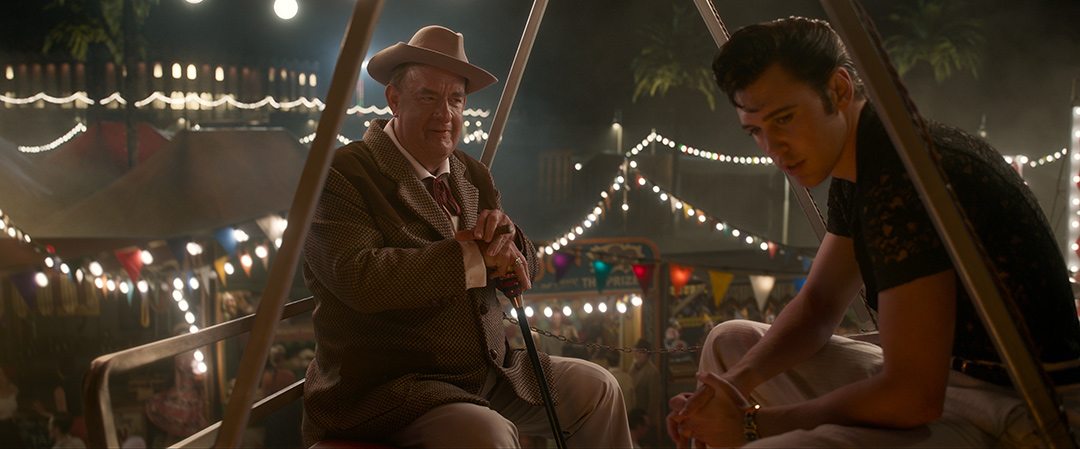
“The beauty also lies in the shift between the present and past, including the historical moments."
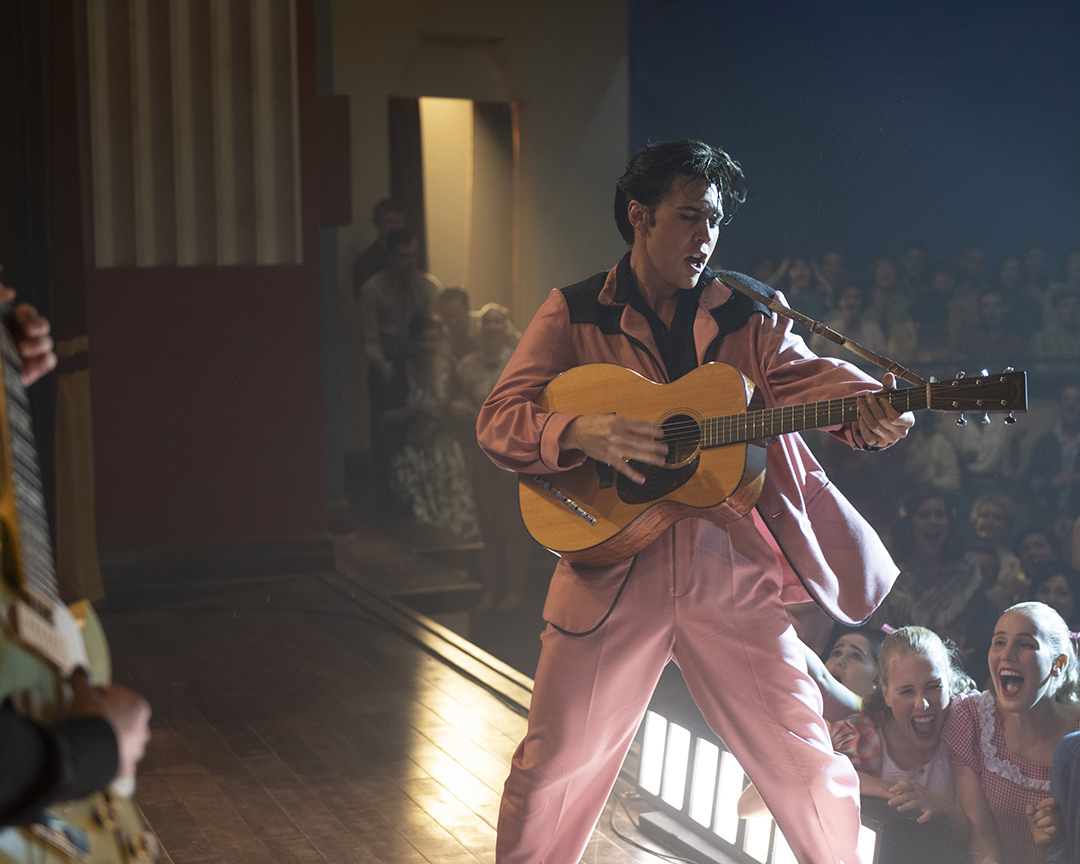
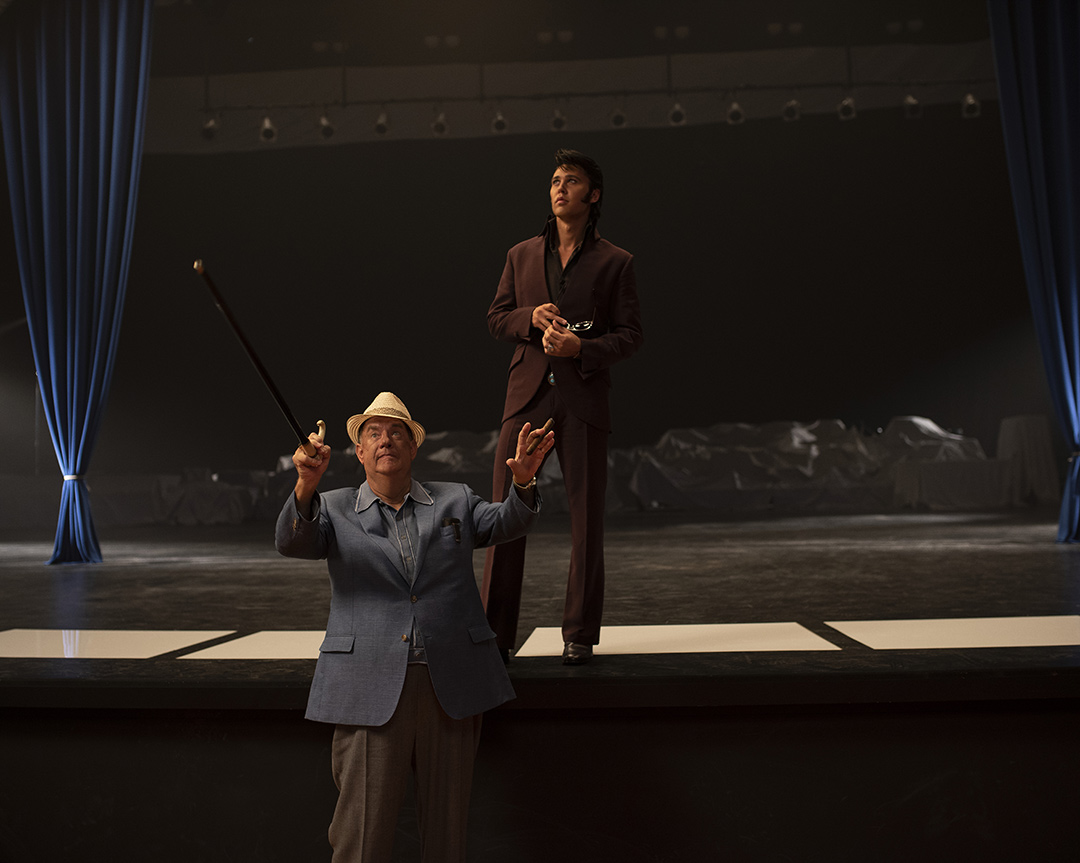
Throughout the film, we see Parker refusing to name himself as the villain in Elvis’s story – only the victim. Despite doing ten stupid things, it did not matter nor bother Parker. He still saw himself as the man who did the one smart thing – the man who “made” Elvis into the musician and man we know and love today and that without him, “there would be no Elvis Presley.” We see Parker not only a man in debt, but also a man in denial. He was a financial and emotional abuser, a gambler and a “blood-sucking vampire.” Although he may have discovered Elvis, we see how he used him for his own personal gain…his meal ticket.
Mandy Walker’s electrifying comic book-like cinematography mirrored Elvis’s interest for them as a form of escapism. Walker successfully structured the protagonist’s storyline, to be that of not only a misunderstood character, but the hero Elvis always dreamed of being…his version of Captain Marvel Jr. Through the power of song and captivating moves, he flew like the bird with no legs – a swift, where every angle and shot of Walker’s cinematography illustrated how Elvis made his female fans climax with joy. In addition, Catherine Martin’s original and glamourous costume design equally deserves an applause, where she truly captured the spirit of Elvis and the full cast beautifully. The choice of music by composer Elliot Wheeler, including the surprising vocals in the end credits will surprise you every time.
Beauty also lies in the dichotomy between the present and past, such as the historical events, which took place near Memphis, which equally deserved focus: including the civil rights movement and the murder of Martin Luther King. As evident in Luhrmann’s filmography, the unique grandeur of each frame depicts the development of the characters and emotional shift brilliantly, including the period during Elvis’s Hollywood career. Elvis is depicted as the hero, the victim. And despite it was not the entire ‘grubby’ truth of the singer, which was not present in this biopic, Luhrmann does indeed share the melancholy of Elvis’s firsthand experiences and evolution of love, drugs, and rock n’ roll.
A unified and flawless transition in the end, from Butler’s performance, into Presley’s recorded rendition of Unchained Melody, which could easily have mistaken Butler as Elvis himself - the scene emphasized Elvis’s desperate cry for love, which cannot be ignored as he shares his love for his audience, even today. For a 2.5-hour film, which was watched TWICE, simultaneously; the detail and discipline within the storytelling, alongside the superb performances from both cast and crew, truly made this flick a work of art, which caught its audience in a trap.
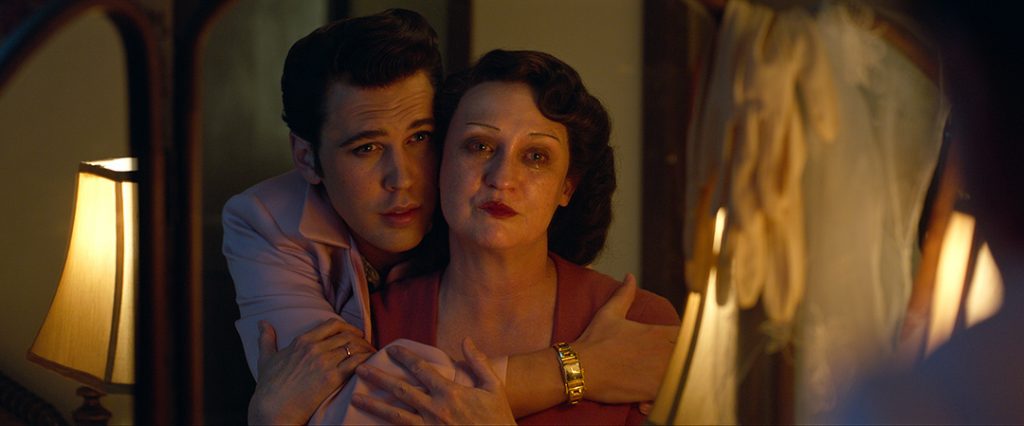
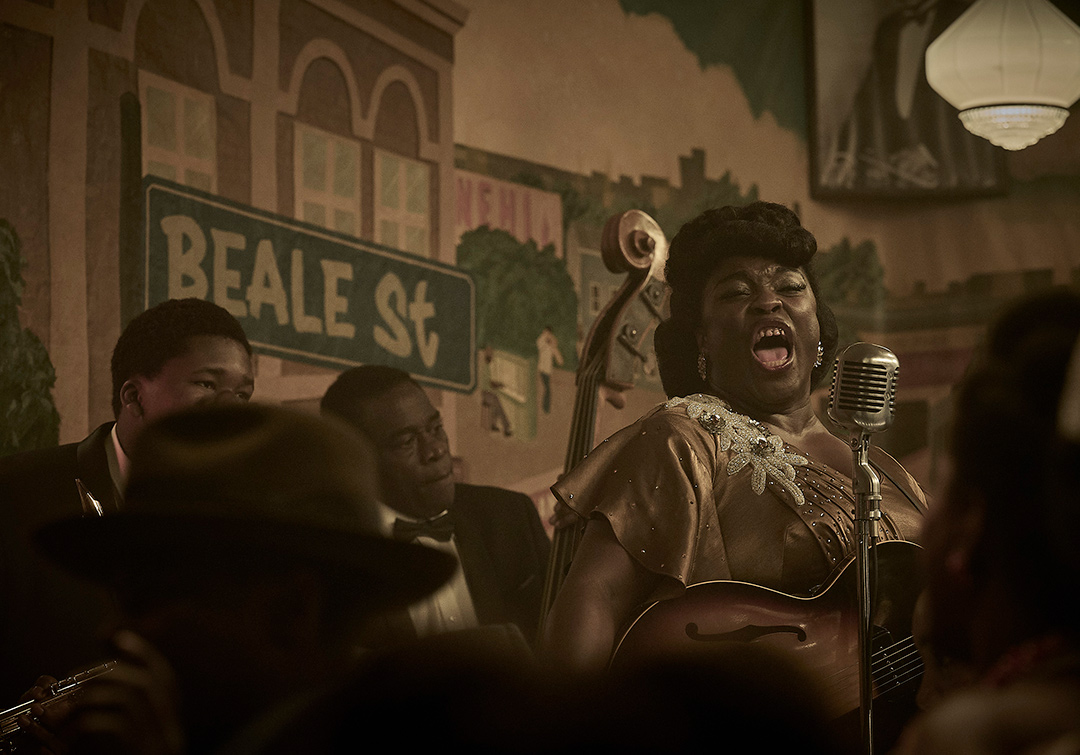
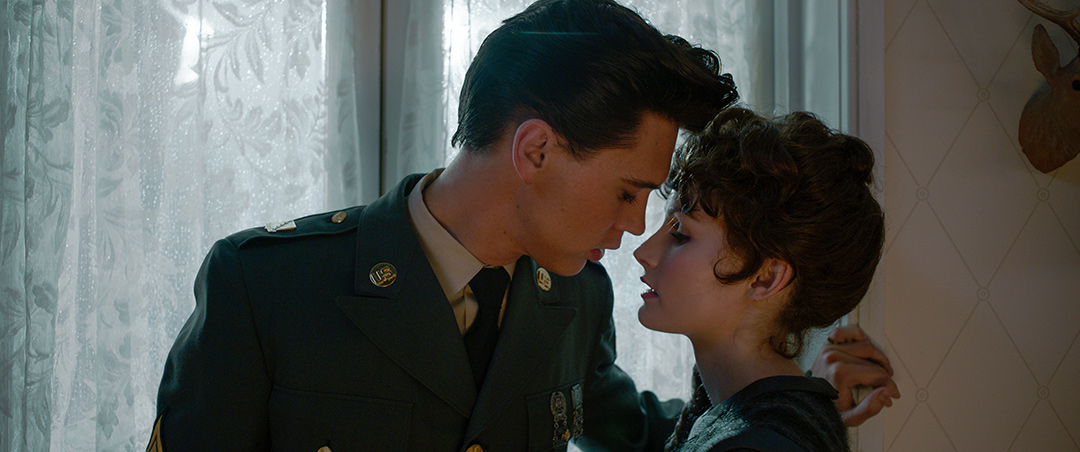
Buy or Rent the Home Premiere from 8th August
Available on 4K, Blu-ray™ and DVD from 19th September
Elvis - Official Trailer
Hanane Zahrouni
Hanane is a freelance writer, and interviewer, and has written for various online publications, using creative and engaging approaches and cultural experiences. She has experience assisting in cross-media campaigns with various non-profits, raising awareness, and telling stories on subjects such as diversity, conservation, and sustainability. Hanane has a degree in Environmental Science (with a minor in English) and is in the early stages of writing a coming-of-age psychological novella.
